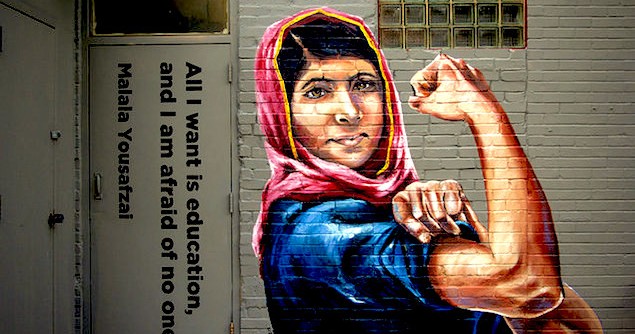Admirable Nobel Decision Unlikely to Spur India-Pakistan Peace

The awarding of a shared Nobel Peace Prize award to a 17-year-old Pakistani girl, Malala Yousafzai, and a 60-year-old Indian man, Kailash Satyarthi, is historic and aimed at conveying multiple messages to global policy-makers. Both awardees have worked tirelessly for the rights of an estimated 180 million children worldwide who continue to be used for harsh labour. The impacts on their right to schooling are crippling.
No doubt, the common cause of child welfare has touched the Nobel committee, but this year’s prize is not unprecedented. UNICEF was awarded the prize in 1965 for a similar cause.
What is perhaps more consequential is the nationality, religions and age of this year’s recipients. A collective award to nationals of two rival nuclear powers hailing from two different religious groups that harbour immense animosity for each other is noteworthy. The age difference of the recipients highlights the transgenerational importance of fighting for children’s rights and for peace-building more generally.
The Nobel committee has perhaps also redeemed itself by recognising Satyarthi, an intellectual protege of Mohandas Gandhi. The untimely assassination of Gandhi in 1948, and the provisions in Alfred Nobel’s will for awarding the prize to living individuals only, was symbolically noted by the committee in awarding no peace prize that year.
It is also important to recognise the hidden hands of doctors in Pakistan and the UK who saved Malala Yusufzai after her assassination attempt. If she had not survived, she too would have been deprived of this honour.
History of prize is sobering
Now let us get to the other matter of any peace dividends this prize might have for the ongoing conflict between India and Pakistan or between Hindus and Muslims. Unfortunately, the history of the prize in galvanising peace between acrimonious countries predicated in ethno-religious differences is very discouraging.
For example, the awarding of the 1994 prize to Yasser Arafat, Shimon Peres and Yitzhak Rabin has had absolutely no impact in moving Arabs and Israelis closer to conflict resolution 20 years on.
The success of the prize in motivating intrastate political peace or protecting dissidents is perhaps slightly more heartening. Yet here too the time it takes for any impact to be realised muddles any causality.
Aung San Suu Kyi was perhaps protected from extreme persecution in Myanmar by her Nobel award. However, more than 22 years hence her participation in any electoral process remains elusive despite the ostensible “opening up” of the country.
Sustained international engagement is needed
The only way the peace dividends from this year’s prize could potentially be harnessed for Indians and Pakistanis alike would be if external powers with influence in the region played a meaningful mediating role. The asymmetry in power between the countries, both demographically and economically, trumps any nuclear equalisation factor one might envisage. Any expectations that both countries will somehow sort out their political issues and see the light of peace following the joint Nobel would be naïve.
India has far more economic might than Pakistan and any incentives for peace-building, despite their logic on ecological and even trade-related grounds, are easily subverted by security hawks. In such a situation, the only way to motivate a lasting peace would involve some form of international mediation on the long-standing territorial dispute between the countries. Major powers, particularly economic trading partners with India such as the United States, would need to invest political capital.
Gulf States such as the UAE or Saudi Arabia could exert similar influence on Pakistan and its powerful military, which maintains strong ties in the region. The Gulf states could also help counter the fundamentalist fervour and conspiratorial rhetoric that have forced Yousafzai into exile. (She lives in the UK for fear of further assassination attempts in Pakistan.)
Norway, which hosts the Nobel prize, tried its hand at mediation in South Asia in the case of the Sri Lankan conflict a decade ago. A military solution prevailed instead, so one may wonder how effective mediation might be.
India and Pakistan both realise their conflict has no long-term military solution. However, the “cool war” status quo serves the political elite in both nations.
Perhaps where the joint Nobel Peace Prize could make a slow but generational shift would be through changing public perceptions of regional conflicts. Both countries have to contend with abject poverty and human rights issues, which neither can afford to trivialise. A campaign to channel public funds from military expenditure towards joint human development goals could be an important next step for Yousafzai and Satyarthi.
However, only concerted international engagement can hope to secure lasting peace. Territorial conflict sadly continues to eclipse the collective good of securing a better future for Indian and Pakistani children.
Saleem Ali is Director of the Centre for Social Responsibility in Mining and Affiliate Professor of Politics and International Studies at The University of Queensland.
This article was originally published in The Conversation. It is republished with permission.





